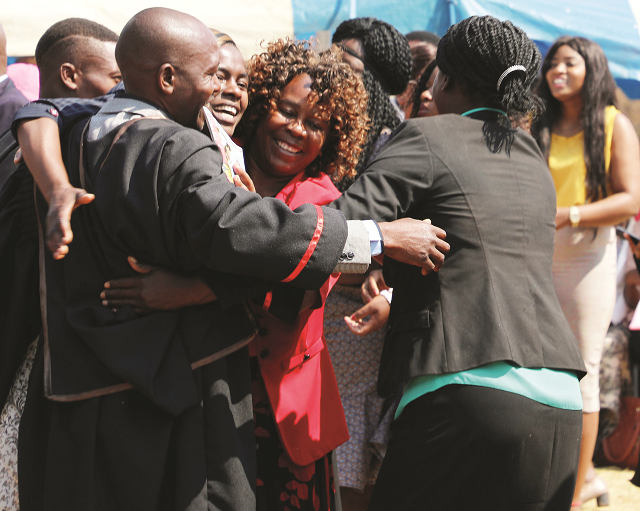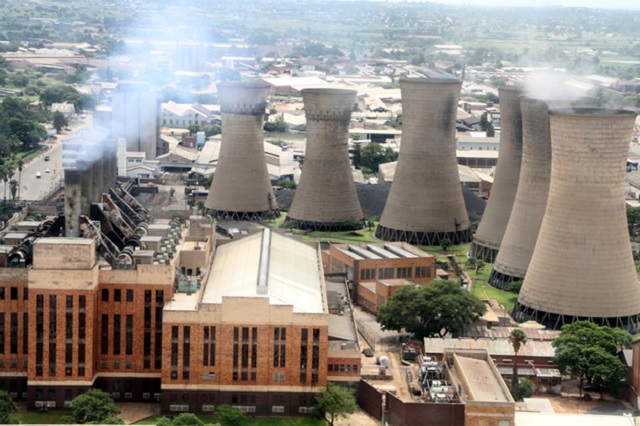Polytech courses to be considered for entry into varsities


A graduate is mobbed by his relatives congratulating him soon after receiving his certificate during a graduation ceremony at Bulawayo Polytech yesterday
Thandeka Moyo, Chronicle Reporter
STUDENTS with polytechnic or college qualifications will no longer be treated as Advanced- Level students when seeking enrolment in universities effective July 20 as their prior qualifications will be taken into account.
Speaking during the graduation of 1 921 graduates at Bulawayo Polytechnic yesterday, Higher and Tertiary Education, Science and Technology Development Minster Dr Amon Murwira said students with polytechnic qualifications cannot be treated like A-level students as was the case in universities.
“The future of this country and the world is dependent on colleges whose innovations will bring about development hence we shall never destroy our polytechnics. We have seen that graduates from colleges and polytechnics who want to go into university were treated as A-Level students since universities were not recognising the courses that they would have done in their previous institutions,” said Dr Murwira.
“In order to make sure that this is not rhetorical, we have concretised this through the National Qualifications Framework Statutory Instrument 132 133 under the Zimbabwe School Examinations Council and 137 under the Manpower Development of 2018.”
He said the 2018 statutory instruments are to ensure that people are guided in terms of vertical progression of students and horizontal comparability of qualifications.
“We want to make sure that our education is transparent in itself so that it can be trusted from outside. So ladies and gentleman, Statutory Instrument 132, 132 and 137 of 2018 enacted on July 20 concretises that when you go to university from the polytechnic, you are not treated as someone coming from A-Level,” Dr Murwira said to applause.
He said the country has a vision of creating a Zimbabwe that is free of hate, conflict, poverty and preventable diseases through education.
“Although Zimbabwe has a high literacy rate of 94 percent, the skills level is at 38 percent. Polytechnics have a role to train technically oriented personnel who are to be initiators, facilitators and implementers of technological development to reduce this gap between the literacy rate and skills level,” Dr Murwira said.
Mr Gilbert Mabasa, the Bulawayo Polytechnic principal, said the number of graduates had increased by 22 percent from the 2017 graduation ceremony.
“This is in response to the mandate and constant reminder that we get from our institutional vision of being the leading provider of highly empowered human capital through excellent Scientific, Technical education and training for sustainable socio-economic development,” he said.
The current student population at the institution is at 4 500 as compared to the 2017 figure of 4 120.
“This represents a 9,7 percent increase in student enrolment. We have also witnessed an increase in the number of female students partaking in Engineering and Science related courses especially in Civil and Construction Engineering and Applied Sciences divisions,” said Mr Mabasa.
He said the institution had a 10 percent staff deficit which was a result of the Public Service Commission’s reduction of the staff establishment from 614 to 348.
The 1 921 graduates graduated with certificates and diplomas in nine departments which include Applied Art and Design, Applied Science and Technology, Automotive Engineering; Civil and Construction engineering.
Other departments are adult and continuing education, commerce, electrical engineering, mechanical engineering and hospitality and tourism.
The Bulawayo Polytechnic was established in 1927 as a technical school and later became a technical college in 1988. — @thamamoe








Comments